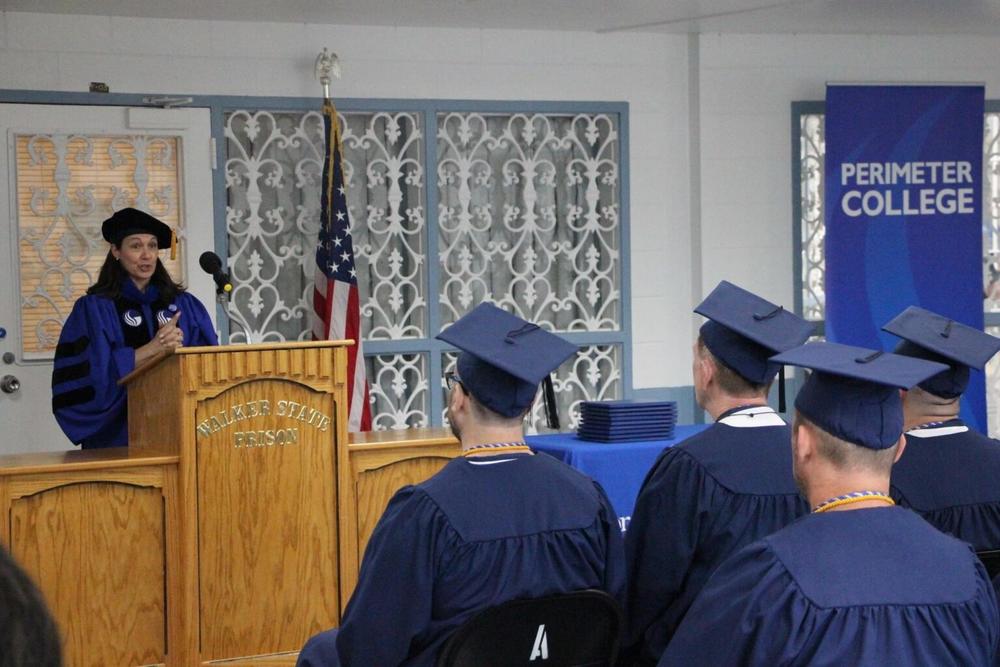
Caption
Dr. Lauri Goodling, associate dean for Georgia State University’s Perimeter College Honors College, speaks to the graduating class at Walker State Prison in Rock Spring, Ga. All students received an associate degree in general studies with honors distinction.
Credit: Georgia Department of Corrections

